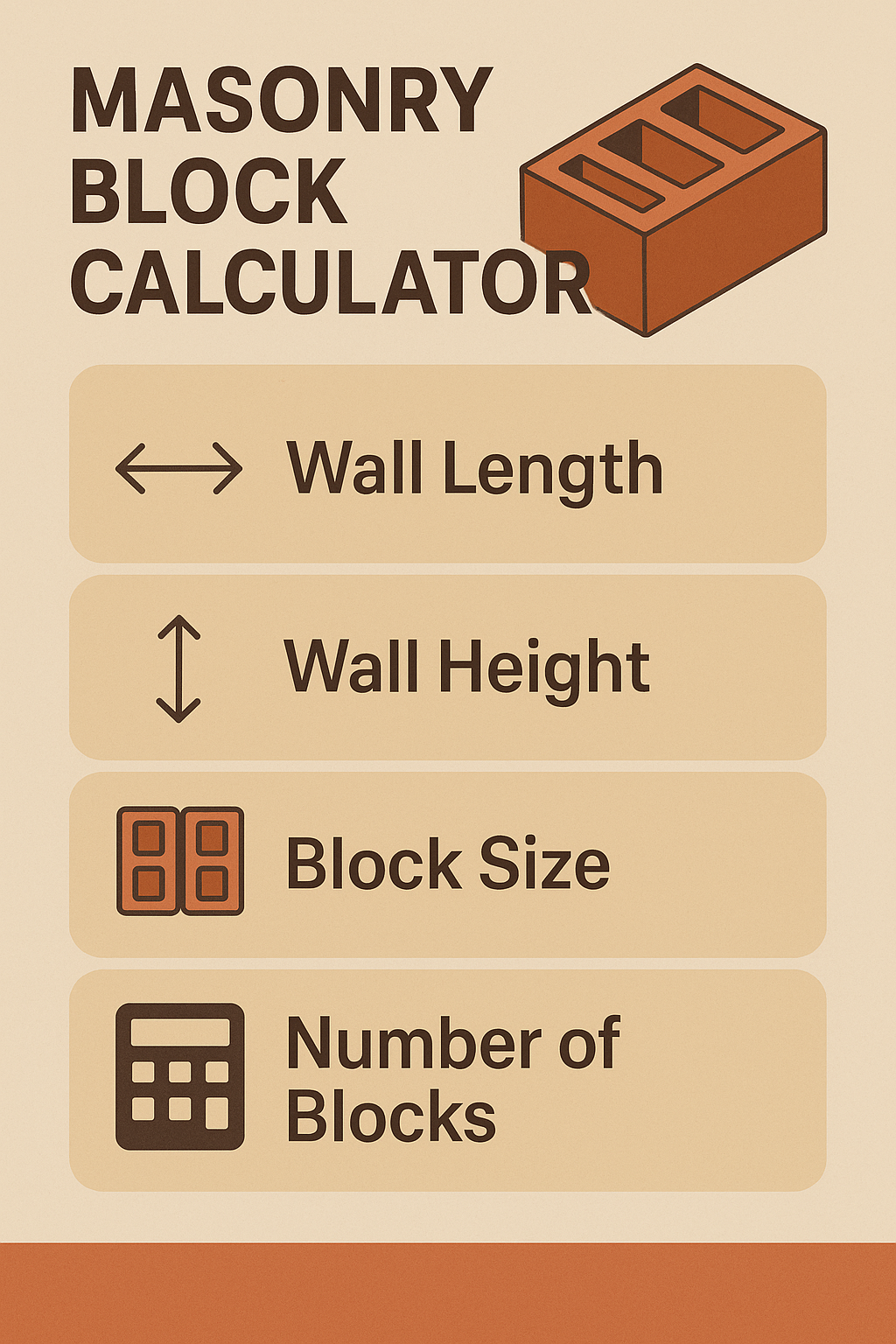Free Masonry Block Calculator Online
Estimating the number of masonry blocks required for a construction project is essential for cost control and material planning. A masonry block calculator from Construction Calculators simplifies the process by using wall dimensions to calculate the total number of blocks needed. Whether you’re building a retaining wall, basement, or a garden structure, this tool helps minimize waste and ensures project efficiency.
What Is a Masonry Block Calculator?
A masonry block calculator is a tool that determines the quantity of concrete masonry units (CMUs) required to build a wall based on the dimensions of the wall and the size of the block. It accounts for standard mortar joints and includes optional waste factors for a more accurate material estimate. This calculator is suitable for residential, commercial, and landscape projects using standard 8x8x16 inch blocks or other sizes.

Why Use a Masonry Block Calculator?
Using a masonry block calculator saves time and reduces the chance of overordering or underordering materials. It also helps with:
- Budget estimation
- Planning deliveries
- Project scheduling
- Estimating mortar needs
- Managing waste and storage
Required Inputs for Accurate Calculation
To use a masonry block calculator, you’ll need:
- Wall Length (in feet or meters)
- Wall Height (in feet or meters)
- Block Size (typically 8x8x16 inches)
- Mortar Joint Thickness (typically 3/8 inch)
- Waste Allowance (commonly 5%–10%)
Masonry Block Calculation Formula
The standard formula for block calculation is:
For an 8x8x16 block (actual size 7.625″ x 15.625″): If your wall is 20 ft long and 10 ft high: With 10% waste:
Factors Affecting Block Quantity
- Block size variation: Custom or architectural blocks vary in dimensions.
- Openings: Deduct for windows, doors, or vents.
- Mortar joint size: Affects effective block size.
- Pattern and bond type: Stretcher, stack, or running bond layouts may change block count.
Benefits of Using a Block Calculator
- Ensures accurate material ordering
- Reduces over-purchasing and waste
- Supports delivery logistics and cost estimation
- Saves time on manual calculations
- Improves build precision
Common Applications
- Residential walls and fences
- Commercial foundations and basements
- Retaining walls and load-bearing structures
- Garden walls, sheds, and decorative features
- Construction of garages, schools, and industrial buildings
Additional Tools for Masonry Planning
- Mortar mix calculator: Estimate cement, sand, and water.
- Concrete fill calculator: For filled CMU walls.
- Wall reinforcement calculator: For horizontal and vertical steel placement.
Conclusion
A masonry block calculator is a practical tool for contractors, masons, and DIY builders. It allows you to estimate how many blocks you need based on standard or custom dimensions, wall size, and waste allowance. Use it to avoid guesswork, save money, and streamline your construction planning. Whether you’re working on a backyard wall or a full-scale building, accurate block estimates ensure your project starts and finishes strong. The Concrete Calculators platform also features helpful tools like the Concrete Block Fill Calculator and the Slab Thickness Calculator to support complete and efficient planning from start to finish.
